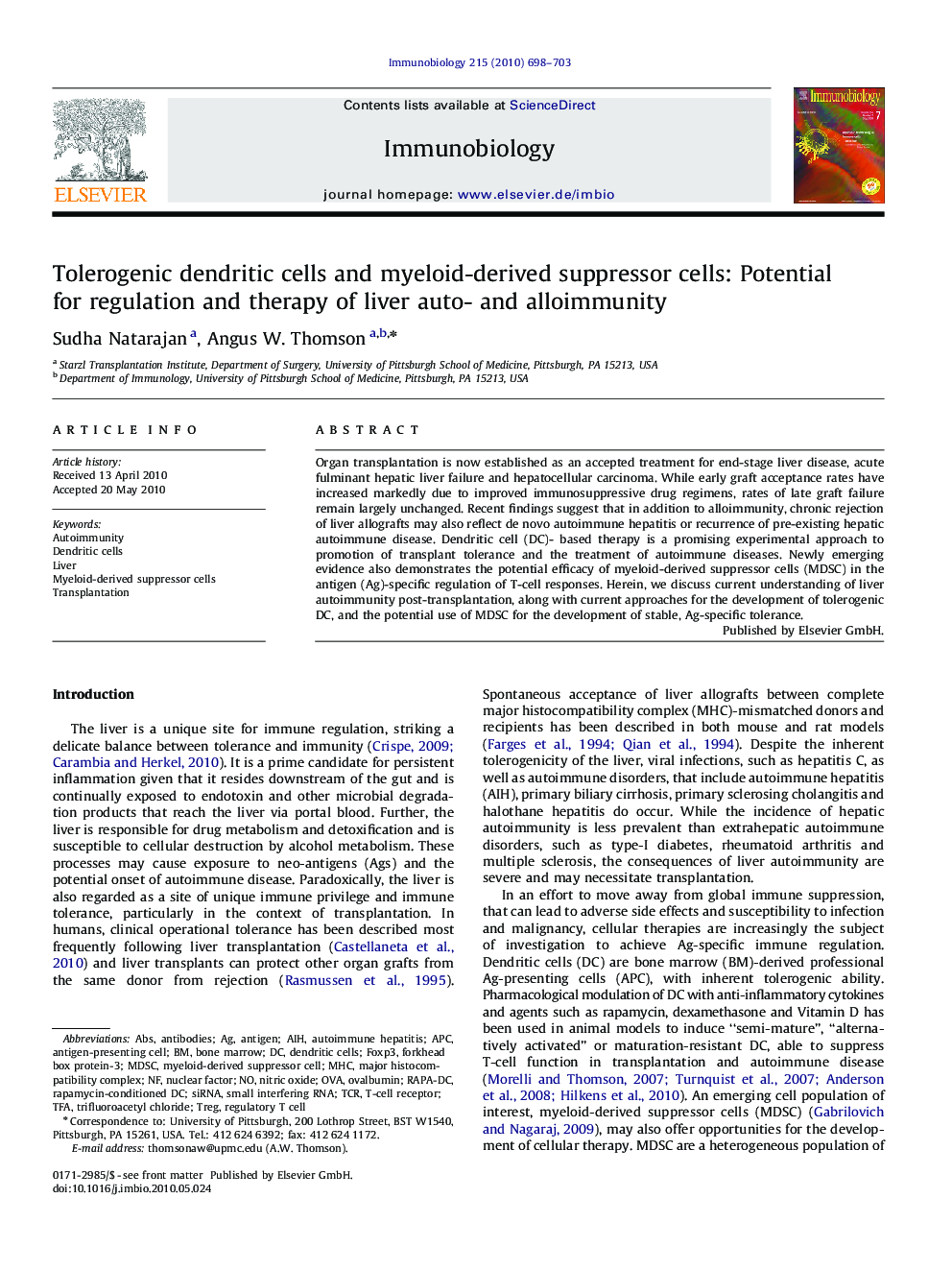| Article ID | Journal | Published Year | Pages | File Type |
|---|---|---|---|---|
| 2183237 | Immunobiology | 2010 | 6 Pages |
Organ transplantation is now established as an accepted treatment for end-stage liver disease, acute fulminant hepatic liver failure and hepatocellular carcinoma. While early graft acceptance rates have increased markedly due to improved immunosuppressive drug regimens, rates of late graft failure remain largely unchanged. Recent findings suggest that in addition to alloimmunity, chronic rejection of liver allografts may also reflect de novo autoimmune hepatitis or recurrence of pre-existing hepatic autoimmune disease. Dendritic cell (DC)- based therapy is a promising experimental approach to promotion of transplant tolerance and the treatment of autoimmune diseases. Newly emerging evidence also demonstrates the potential efficacy of myeloid-derived suppressor cells (MDSC) in the antigen (Ag)-specific regulation of T-cell responses. Herein, we discuss current understanding of liver autoimmunity post-transplantation, along with current approaches for the development of tolerogenic DC, and the potential use of MDSC for the development of stable, Ag-specific tolerance.
